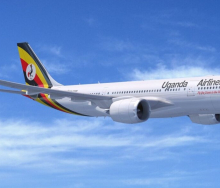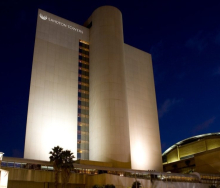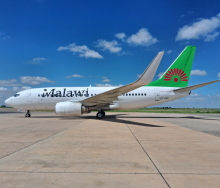Corporate travel, a US$1,2 trillion (R22,5 trillion) business globally, is facing new headwinds that are affecting its recovery rate from the pandemic. Insiders are raising questions on its very future.
The Financial Times in an August article, quoted Rob Hayes, CEO of US low-cost airline JetBlue, saying that the airline industry was now operating in “a world where business travel may not be coming back”.
British Airways parent, IAG; the Air France KLM group and Lufthansa reported that at the end of the second quarter, corporate bookings on these three airlines were at 60-70% of pre-pandemic levels and were actually in a decline from the first quarter’s figures, according to an August 2023 report in the Financial Times. In fact, both AF-KL and LH said they had written off the chances of the full recovery of domestic travel.
Airlines in the US reported that corporate travel’s recovery was stuck at 75% of 2019 levels.
Carbon concerns
Climate-change activism is gathering strength and becoming more mainstream across the globe, as it starts to appear likely that the world will not make the Carbon nett-zero target of 2050. It has become the norm for corporations to look at their emissions and cut flights as a way of minimising these. That translates to a cut in air trips overall.
The tide in the EU seems to be turning in favour of big gestures to remove emissions, and what happens at Schiphol Airport could be the bellwether. Schiphol has become a focus point for the tensions between airlines, the airport, the government and the EU. The liberal Dutch government wants to impose a flight cap on the airport as a remedy for noise and air pollution. This has been repelled, but Ruud Sondag, Schiphol’s interim CEO has said that he thinks things could get worse and the airport end up with fewer flights than ever.
Other notable recent gestures in a green direction have been the Netherlands tripling its air passenger tax to €30 (R613) and Denmark proposing a green tax on all flights. The French Transport Minister earlier this year proposed a hefty fuel tax on private jets and a new tax on flights to raise funds for expanding the country’s rail service. And France, Belgium and the Netherlands are reported to be supporting proposals for a minimum fare on flights.
In France, a recent survey among people aged 18-24 revealed that they believed that flights should be limited – to four in a lifetime.
All this cuts across the idea of corporate travel.
Scott Gillespie of tClara, a US-based corporate travel strategy expert, on his website provides a seven-point questionnaire for a corporate traveller/travel manager contemplating a trip
“Today, it’s more important than ever to get these travel decisions right. We’re looking at tighter travel budgets, more acceptance of the virtual meeting, and greater concerns about the climate. We’re also keen to build the trust and relationship equity that’s deteriorated over the last two and a half years,” said Gillespie.
The questionnaire…
- Is it clearly better to do this trip’s mission in person than by a virtual meeting?
- Are this trip’s risks to the traveller’s health, safety, and well-being acceptable to them and their employer?
- Will this trip’s impact on the climate be sufficiently mitigated?
- Will this trip’s success clearly help achieve an important goal?
- Will the traveller have one clearly value-adding role on this trip?
- Have specific goals or success criteria been established for this trip?
- Does the traveller expect to get a reasonably good return on the trip’s cost and their time?
Gillespie suggests that any corporate could devise their own list, as long as the questions cover these issues – the benefits of meeting in person, health and safety considerations, climate impact, criteria for success, and the prospect of a good ROI, even if this is unmeasurable.
Flying costs
A steady rise in premium-class fares has put them an average of 20-25% higher than in 2019 (domestic and international combined), and airfares continue to increase. These increases are due to a number of factors:
- Increased fuel costs
- Regional conflicts
- More demand for premium seats
- The rising cost of airport fees
- Here in South Africa, the simple law of supply and demand means that the distinct lack of capacity on international flights does a good job of keeping airfares high.
More and more ‘extra’ costs are also bound to enter aviation in the near future due to various governments’ actions to make the public averse to flying and mitigate climate change.
These high airfares mean that every business trip must be turned over, scrutinised and be subject to the question: “Is this trip really necessary?”














